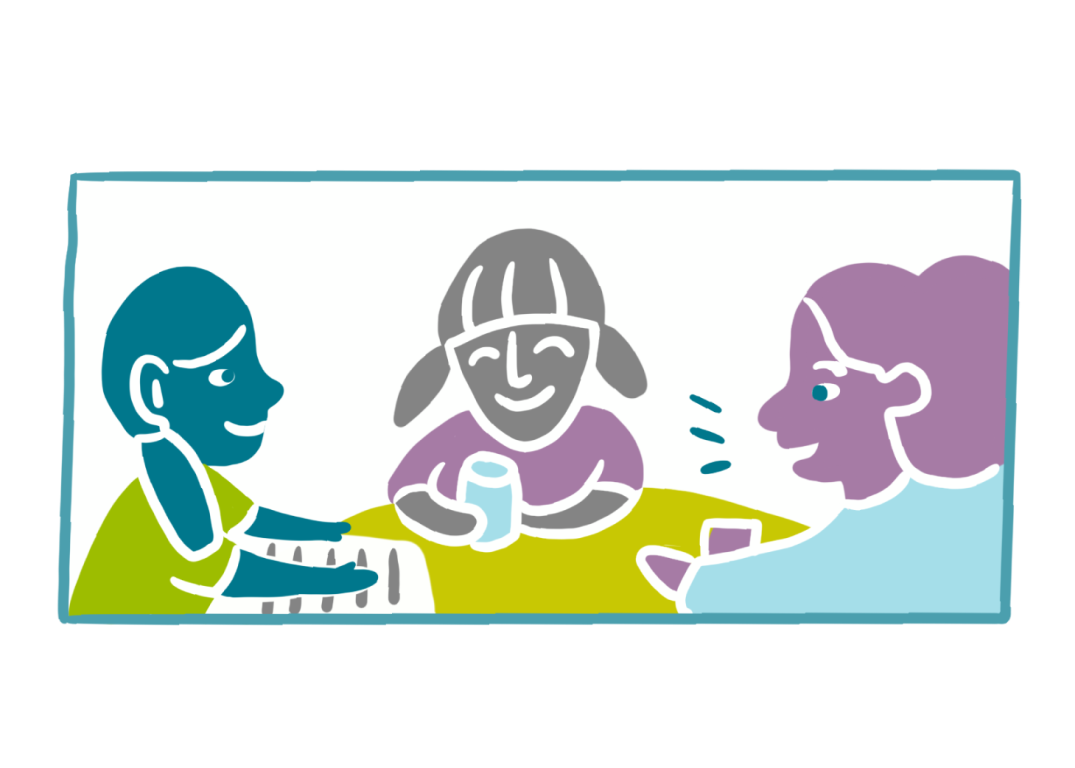Being a client of child welfare services
The basic principle is that if an intervention in the family’s affairs is necessary, the least invasive route to help the family is preferred. Such primary services are called support measures in open care.
A child is placed in alternative care only if the support measures in open care are not sufficient or do not provide care that is in the best interests of the child. Sometimes, however, the situation may require an emergency placement.

Child welfare is based on law
Under the Child Welfare Act, parents or guardians are primarily responsible for a child’s care and upbringing, but they are entitled to receive help from society. This help should be available at an early stage to ensure that parents can cope with their parenting duties. If parents or guardians for some reason are unable to take care of their children’s wellbeing, Finnish society is obliged to intervene. In this case, the task of child welfare services is to guarantee the child’s wellbeing. This means that help is not always voluntary, but the Child Welfare Act prescribes that child welfare authorities must act in certain situations to protect the child.
In Finland, child welfare is defined in the Child Welfare Act. This means that the activities and decisions of child welfare authorities are always based on the law. The Child Welfare Act applies to all children in Finland regardless of their background.
The best interests and involvement of the child
Child welfare is always about the best interests of the child. This means that in all decisions concerning a child the workers must decide on the best solution regarding the child’s current situation. The Act contains a list of issues to which a child welfare social worker must pay attention when assessing whether the best interests of the child is realised. For example, consideration must be given to how different solutions guarantee the maintenance of a child’s close and continuous relationships or support their linguistic, cultural and religious background.
A worker assesses a child’s best interests in accordance with the Act, so sometimes child welfare workers must make decisions, with which the parents or child disagree.
Children have the right to express their views on matters concerning themselves, and these views must be taken into account as is appropriate considering the child’s age and level of development. Child welfare services must also identify and take into account the child’s wishes and opinions.
According to law, children aged 12 or older have the right to be heard. This means that their opinion must be taken into account in matters concerning child welfare in the same way as adults’ opinions. Children have the right to access the documents that concern themselves, and they must be officially heard when decisions are made. They can apply for help, require services and oppose decisions that concern them. They must be notified about any decisions issued and given an opportunity to appeal the decisions.
Parents’ rights and responsibilities in child welfare
As a rule, parents have the right to decide on their child’s care, upbringing, place of residence and other matters relating to the child. When decisions are made, the child’s opinion should also be taken into consideration. While open care support measures are underway, parents have the right to decide on all matters relating to the child. Open care support measures refer to services for families that support and help children when they live at home. The legal principle is that when there is intervention in the child’s affairs, there must be cooperation with the parents. The parents are always entitled to decide on their child’s religion and religious education.
Parenting does not end with a child being taken into care and placement, but the parents’ power to make decisions is restricted. The parents are still the child’s guardians, but the municipal social services decide on the child’s place of residence, upbringing and care. The aim is still to make decisions in cooperation with the parents. The parents have the right to obtain information on the child’s affairs and communicate with the child while they are in care or emergency placement. The parents also have the right to learn what is recorded about them and the grounds for the actions taken.
Read next
Support in open care is the first option
Substitute care
Glossary
There are many concepts associated with child welfare. The glossary explains what the most important terms mean.